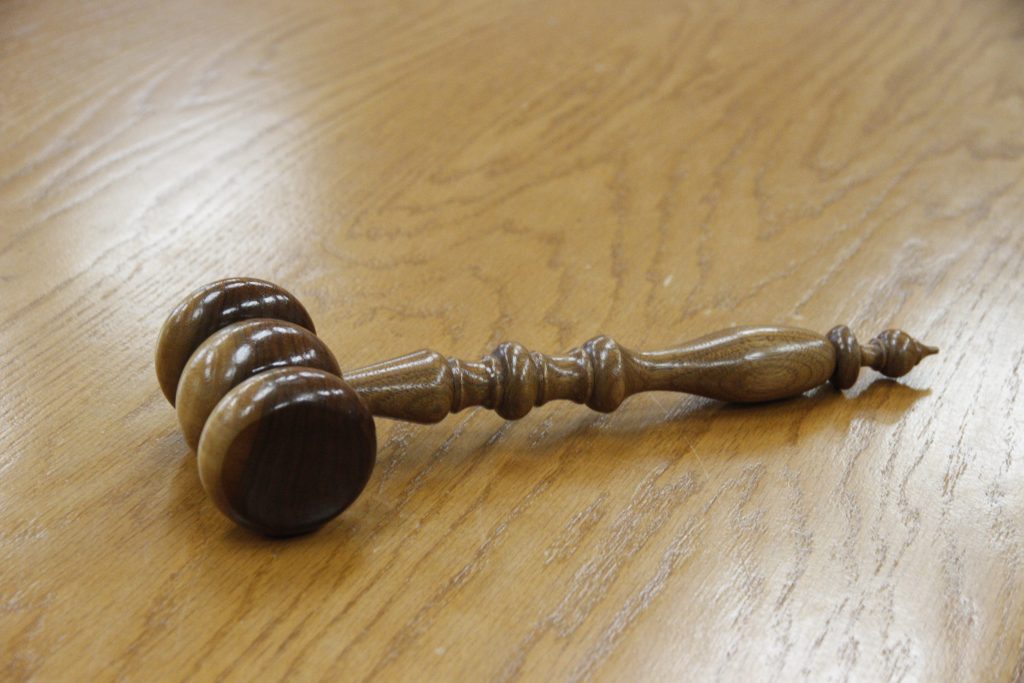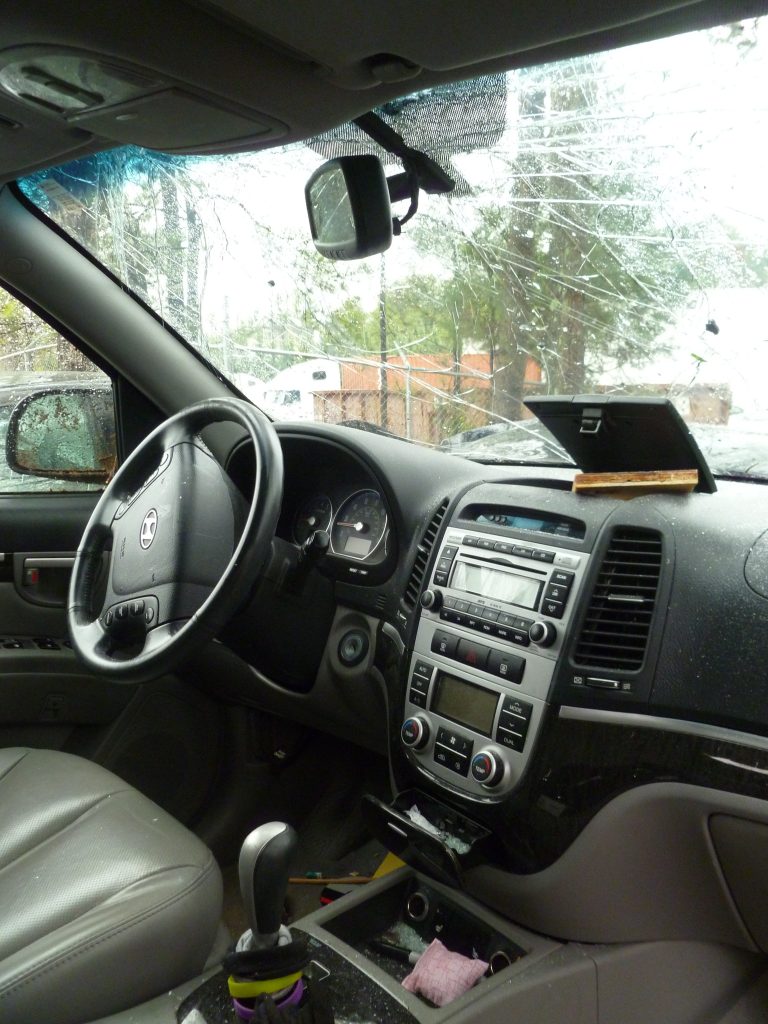 In a recent decision by the Louisiana Court of Appeal, Third Circuit, the court affirmed a trial court’s judgment granting summary judgment in favor of Stanley Access Technologies LLC (Stanley) in a personal injury case brought by Vera Bernard. The case stemmed from an incident where Ms. Bernard allegedly sustained injuries after striking a revolving door at the Lafayette Airport.
In a recent decision by the Louisiana Court of Appeal, Third Circuit, the court affirmed a trial court’s judgment granting summary judgment in favor of Stanley Access Technologies LLC (Stanley) in a personal injury case brought by Vera Bernard. The case stemmed from an incident where Ms. Bernard allegedly sustained injuries after striking a revolving door at the Lafayette Airport.
Ms. Bernard filed a lawsuit alleging that the revolving door, installed by Stanley, came to an abrupt halt, causing her to fall and sustain injuries. She claimed Stanley was negligent in the installation, maintenance, repair, and employee training related to the door.
Stanley filed a motion for summary judgment, asserting that it had no duty to Ms. Bernard as the responsibility for daily inspection and maintenance of the doors rested with the Lafayette Airport. They also argued that there was no evidence of the door malfunctioning.
 Louisiana Personal Injury Lawyer Blog
Louisiana Personal Injury Lawyer Blog


 In a recent decision by the
In a recent decision by the  In a heart-wrenching case involving the sexual assault of a patient at an outpatient psychiatric treatment facility, the Louisiana Court of Appeal, Third Circuit, recently affirmed a summary judgment that dismissed claims against two individual owners/officers of the facility. The decision, handed down in
In a heart-wrenching case involving the sexual assault of a patient at an outpatient psychiatric treatment facility, the Louisiana Court of Appeal, Third Circuit, recently affirmed a summary judgment that dismissed claims against two individual owners/officers of the facility. The decision, handed down in  The vibrant spirit of Mardi Gras parades, with their kaleidoscope of colors and joyous revelry, often paints a picture of unadulterated celebration. Yet, beneath the surface of these festivities, unexpected tragedies can unfold, turning the jubilation into a legal labyrinth. Such was the case in Franklin, Louisiana, where a moment of revelry took a distressing turn as a float participant was tragically injured during a parade. What followed was a legal showdown, entangling federal regulations, contractual intricacies, and the question of liability. Amidst the sparkle and confetti, a courtroom drama unfolded, revealing the complex legal considerations surrounding the incident.
The vibrant spirit of Mardi Gras parades, with their kaleidoscope of colors and joyous revelry, often paints a picture of unadulterated celebration. Yet, beneath the surface of these festivities, unexpected tragedies can unfold, turning the jubilation into a legal labyrinth. Such was the case in Franklin, Louisiana, where a moment of revelry took a distressing turn as a float participant was tragically injured during a parade. What followed was a legal showdown, entangling federal regulations, contractual intricacies, and the question of liability. Amidst the sparkle and confetti, a courtroom drama unfolded, revealing the complex legal considerations surrounding the incident. Courts often hear contradicting testimony and must decide who to believe or who is more credible. For example, the following
Courts often hear contradicting testimony and must decide who to believe or who is more credible. For example, the following  After a lawsuit, a trial is when each side can articulate their case theories. Usually, the culmination of a trial is a judgment that can be appealed. However, there are other occasions where the court can discuss the judgments besides an appeal. An alternative to an appeal is the petition for nullity, which may further examine the case and the court’s decisions. What is a petition for nullity of judgment, and how can it be used to overturn a jury verdict? The following lawsuit, Jefferson Parish, Louisiana, answers this question.
After a lawsuit, a trial is when each side can articulate their case theories. Usually, the culmination of a trial is a judgment that can be appealed. However, there are other occasions where the court can discuss the judgments besides an appeal. An alternative to an appeal is the petition for nullity, which may further examine the case and the court’s decisions. What is a petition for nullity of judgment, and how can it be used to overturn a jury verdict? The following lawsuit, Jefferson Parish, Louisiana, answers this question. Some doors, such as bathroom doors, are heavy and have quick automatic closing mechanisms attached. If a door of that nature hits you in the back on your way and knocks you down, who is liable? The following case out of New Orleans shows how courts deal with door-closing mechanisms and trip-and-fall lawsuits.
Some doors, such as bathroom doors, are heavy and have quick automatic closing mechanisms attached. If a door of that nature hits you in the back on your way and knocks you down, who is liable? The following case out of New Orleans shows how courts deal with door-closing mechanisms and trip-and-fall lawsuits.  Auto insurance can be beneficial when you are in a car accident. However, it isn’t uncommon to have specific provisions in your insurance policy that can limit your coverage. A recent case out of Kenner, Louisiana, interpreted whether certain caveats in an insurance policy can limit a client’s uninsured motorist coverage (UM/UIM).
Auto insurance can be beneficial when you are in a car accident. However, it isn’t uncommon to have specific provisions in your insurance policy that can limit your coverage. A recent case out of Kenner, Louisiana, interpreted whether certain caveats in an insurance policy can limit a client’s uninsured motorist coverage (UM/UIM). Injury and negligence alone cannot support a personal injury claim. There must be causation or a link connecting a negligent act and the related injury to succeed at trial. A consistent medical history and a plaintiff’s credibility can enormously impact whether a jury decides that a negligent act caused an alleged injury. This principle was affirmed by the Calcasieu District Court when plaintiff Treima Williams was unsuccessful in her claim for damages arising from a road traffic accident. The case below shows how contradictory medical history can affect the outcome of your injury lawsuit.
Injury and negligence alone cannot support a personal injury claim. There must be causation or a link connecting a negligent act and the related injury to succeed at trial. A consistent medical history and a plaintiff’s credibility can enormously impact whether a jury decides that a negligent act caused an alleged injury. This principle was affirmed by the Calcasieu District Court when plaintiff Treima Williams was unsuccessful in her claim for damages arising from a road traffic accident. The case below shows how contradictory medical history can affect the outcome of your injury lawsuit.